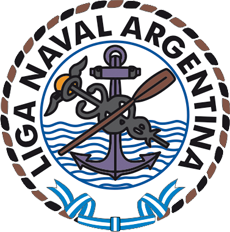Lourdes Ezechiëls Marchena, LLM
Fundadora, Presidente & CEO de Curaҫao Sail Foundation
Ponencia presentada en el marco de la XXXIIª Asamblea General Ordinaria de la Federación Internacional de Ligas y Asociaciones MarÃtimas y Navales â FIDALMAR realizada en Buenos Aires, Argentina entre el 17 y el 19 de Octubre de 2018.
Publicado: 05-11-2018
"Los corales y las algas han estado trabajando juntos durante 160 millones de años, mientras ellos formaban arrecifes. Esto significa casi 100 millones de años más de lo que pensábamosâ, asà escriben investigadores estadounidenses. âLos organismos se necesitan los unos a los otros para poder sobrevivir; y juntos ya soportaron varios cambios climáticos". (Elsevier Weekblad Nr 33, 18.08.2018, Letterlijk, p. 9).
Pues yo creo que estos micro-organismos presentan un excelente ejemplo para nosotros los seres humanosâ¦especialmente en estos tiempos difÃciles de cambios climáticos. Leo algo en inglés: https://www.iucn.org/content/sixty-years-coral-reef-research-cura%C3%A7ao
âThe Caribbean island of Curaçao lies just a little bit to the North of Venezuela and is surrounded by more than 100 square kilometers of coral reefs. In a recent study of all available scientific literature on the state of Caribbean reefs by the Global Coral Reef Monitoring Network (GCRMN), some of Curaçaos reefs, especially those along the eastside of the island, rank among the best remaining in the Caribbean region. In addition to its reefs, large inland bays can be found around the island, harboring mangrove/sea grass communities that serve as nursery for certain types of reef fish, more abundant than on similar islands that lack inland bays. Our coral reefs currently range in quality from degraded to almost pristine.
Overfishing and coastal development are foremost responsible for the local degradation of these reefs. On the other hand, one can still find reefs that have not changed at all for more than 50 years or even more. (Such information is derived from the longest time series data on changes in reef community structure in the world, started by Prof. Bak in the early 70s. These near-pristine reefs are found in the remote areas of the island such as the eastern part of the island, or along the wave-impacted north side of the island.) In short, the reefs of Curaçao can be found in conditions varying from degraded to among those considered among the best in the Caribbean.
Such healthy reefs provide numerous benefits to small islands like Curaçao: they support all sorts of activities such as diving, fishing and swimming, but also protect the shore from storm, generate the sand required to form natural beaches and ensure good water quality, so all the activities mentioned above can take place in the first place. Economists have calculated that coral reefs provide goods and services worth about $375 billion worldwide each year - a staggering figure for an ecosystem which covers less than one percent of the earths surface.
Thankfully, existing and new scientific information on Curaçao reef communities gathered by CARMABI, is increasingly more often used by the local Government to improve and design new strategies to protect the fragile ecosystem surrounding the island and the services it provides to the local economy. In February, 2015, the Waitt Institute and the Government of Curaçao launched âBlue Halo Curaçaoâ to help envision, design, and implement sustainable ocean policies for our waters.
And last month we had BIG NEWS! In September the Government of Curaçao approved 5 Fish Reproduction Zones to protect important ocean resources. Fish Reproduction Zones protect marine habitats and nurseries and allow ecosystems to recover and grow by preventing fishing & extraction in certain areas. Btw, Perhaps you did not know that our coral reefs help to produce medicine for humans? Oh yes! For many islands, to take such protective measures has come too late and reef systems have collapsed, causing losses in tourism and fishing revenue, in floods and deteriorated water quality resulting even in the emergence of waterborne diseases that affect human health. None of that has happened on Curaçao yet and as such the islands reefs, together with others in the region such as those on Bonaire and the Aves Islands, remain among the best in the Caribbean region.â
Y, según el National Geographic Magazine, hay mucha esperanza para un excelente futuro de nuestros arrecifes⦠PERO NUESTRA ESPERANZA PARA EL FUTURO DE NUESTROS ARRECIFES no sólo está basada en estas proyecciones; no, también estamos trabajando en la superficie del mar para conservar su calidad, ayudando en esta forma a los micro-organismos que en ella viven. Y, ¿cómo lo hacemos? Simplemente, promoviendo más y más la navegación a vela, introduciendo paulatinamente desde el 1999 (el año en que Curaҫao cumplió sus 500 años de historia escrita), las recaladas de los buques escuela que representan la sostenibilidad limpia y duradera, y por lo tanto son de nuestra preferencia.
No es por nada, que este año, que nuestra Fundación cumplió la edad de 18, y creció de esa adolescencia a ser un adulto completo en el asà nombrado âVelas Latinoamérica Curaçao 2018â. Este adulto dentro de cuatro años será apto para ganarse una segunda estrella en el mundo global de las Grandes Regatas del Hemisferio Occidental: VELAS LATINOAMERICA 2022, cuyo timón lo llevará Brasil con sus 200 años de Independencia y de su Marina.
Concluimos hoy, nuestro tema con una cordial invitación a la Armada Argentina, a unirse a este magnÃfico encuentro náutico que tanta alegrÃa entrega a nuestros paÃses y a su gente y, que además, une a las dotaciones. Recibiremos a la Fragata ARA âLibertadâ con los brazos abiertos en Velas Latinoamérica 2022⦠(En holandés se dice: â3x is scheepsrecht, â3x veces es Leyâ ).
Honorables miembros de la directiva de FIDALMAR, delegados, colegas y amigos: ¡muchas gracias por habernos acompañado!
No hay comentarios para esta nota.
